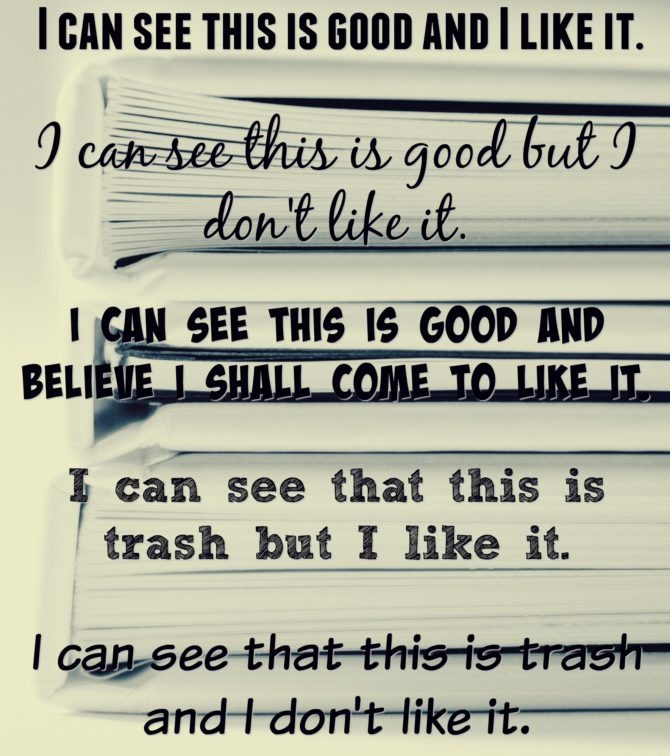There is nothing quite like the disappointment you feel when you get to the last page of a highly acclaimed book only to realize it was a complete let-down. I really should like this book, you think, but it just didn’t work for me.
Then there is the tainted thrill of plowing through a guilty pleasure novel. This book brought me so much pleasure, but it’s not a title I’m willing to share with my friends.

Books—or rather, my experiences with books—have a way of eliciting a confluence of mixed emotions. My personal reaction to a book does not always align with others’ opinions or even my own objective evaluation, leading me to question my personal judgment and sometimes that of other readers. This runs contrary to my belief that reading should be devoid of snobbery or shame. Which is why I was so appreciative to Anne Bogel for directing me to W. H. Auden’s perspective on the subject. In A Certain World: A Common Place Book, Auden writes:
“As readers, we remain in the nursery stage so long as we cannot distinguish between taste and judgment, so long, that is, as the only possible verdicts we can pass on a book are two: this I like; this I don’t like. For an adult reader, the possible verdicts are five: I can see this is good and I like it; I can see this is good but I don’t like it; I can see this is good and, though at present I don’t like it, I believe that with perseverance I shall come to like it; I can see that this is trash but I like it; I can see that this is trash and I don’t like it.”
This simple framework has been a game-changer for me. It frees me from feeling like I must enjoy every classic that I read, and it removes the shame from my enjoyment of a breezy beach read or indulgent who-done-it. It also informs my ultimate review of a book: my book ratings primarily reflect my personal opinions, but my objective stance—my Auden-esque verdict—might cause me to kick my rating up a star (when “I can see it is good but I don’t like it”) or down a notch (when “I can see this is trash but I like it”).
I wonder if other readers take these factors into consideration when reviewing books. Are the ratings I see on GoodReads and Amazon purely subjective, or do they account for more impartial judgments as well? How about you: if you are the type who likes to rate books, what is your approach?

As readers, we all have different tastes and thankfully there are books to satisfy all of our bookish desires. From literary gems to the occasional trash, it all has a place—in the library, in book stores, and in readers’ hearts.